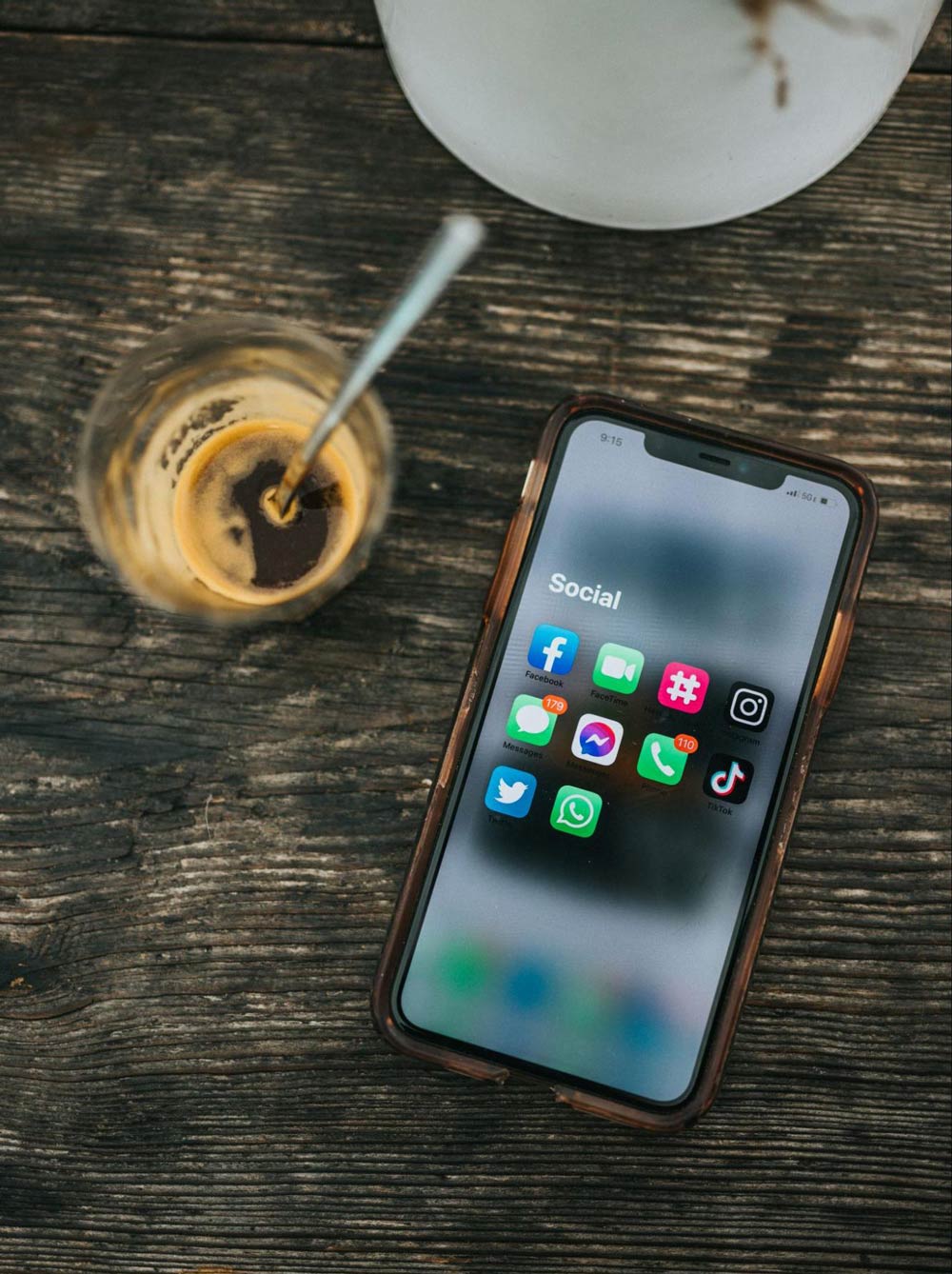In today’s hyper-connected world, social media has become an integral part of our daily lives. There are so many benefits to social media; it allows us to connect with friends, share experiences, and stay informed. However, the pervasive nature of social media also raises concerns about its impact on mental health. While it can foster community and support, it can also lead to feelings of inadequacy, anxiety, and burnout. As we navigate these digital landscapes, understanding the impact of social media—both positive and negative—is crucial. Promoting healthy online habits and encouraging open discussions about the pressures of social media can help us build resilience and maintain their mental well-being in an increasingly connected world.
The Double-Edged Sword of Social Media
Positive Aspects
- Connection and Community: Social media enables connections with people worldwide, helping individuals find communities that share similar interests or struggles
- Access to Information: It offers a wealth of information about mental health resources, coping strategies, and support networks
- Expression and Creativity: Platforms provide a space for self-expression, allowing users to share their art, writing, or experiences
- Networking: Social networks allow us to access and connect with job opportunities, careers networks, and personal development
Negative Effects
- Comparison and Envy: Scrolling through perfectly curated feeds can lead to unhealthy comparisons, fostering feelings of inadequacy and low self-esteem
- Information Overload: Constant exposure to news and updates can be overwhelming, contributing to anxiety and stress
- Social Isolation: Paradoxically, excessive use of social media can lead to feelings of loneliness, as online interactions may lack the depth of face-to-face communication
Recognizing Social Media Burnout
Social media burnout can manifest in various ways, including feelings of fatigue, irritability, or a desire to disconnect entirely. If you find yourself scrolling aimlessly or feeling worse after using social media, it may be time to reassess your habits. See below for specific tips and tricks to help manage and avoid social media burnout!
Tips for Avoiding Social Media Burnout and Enhancing Mental Health
1. Set Boundaries
Establish clear limits on your social media use. This might include designating specific times for checking your feeds or using apps that track and limit your screen time. There are applications that can assist with this! Stay Focused, Moment, and AppDetox are applications you can download that will let you know when you’ve hit your chosen limit on certain social media apps.
2. Curate Your Feed
Instead of mindlessly scrolling, engage with content that resonates with you. Follow accounts that inspire, uplift, and provide value to your life. Unfollow or mute accounts that trigger negative feelings or promote unrealistic standards. This tip is designed to feel empowering. Remember that you have the choice to decide who and what is on your feed!
3. Take Breaks
Schedule regular digital detoxes! Whether it’s a few hours, a day, or a week, stepping away from social media can help you reconnect with the present and reduce feelings of overwhelm. Removing a social media app from the home screen for a bit of time can be a helpful way to avoid the unconscious opening of the app that fosters mindless scrolling.
4. Focus on Real Connections
Prioritize face-to-face interactions over online ones. Plan activities with friends and family to foster deeper connections that can enhance your mood and provide emotional support.
5. Engage in Offline Activities
Balance your online life with offline hobbies and interests. Whether it’s reading, exercising, or pursuing a creative project, engaging in activities that bring you joy can improve your overall mental health. Plan activities with friends and family to foster deeper connections that can enhance your mood and provide emotional support. Making a list of things you enjoy doing that do not involve social media can be a helpful way to achieve this!
Social media is a powerful tool that can enhance our lives, but it’s essential to approach it with mindfulness and balance. By implementing these tips, you can create a healthier relationship with social media that promotes positive mental health and well-being. Remember, it’s not about eliminating social media entirely, but about using it in a way that enriches your life rather than detracts from it. Finding that balance is key to ensuring that social media serves as a source of connection and support, rather than a cause of stress or burnout.


